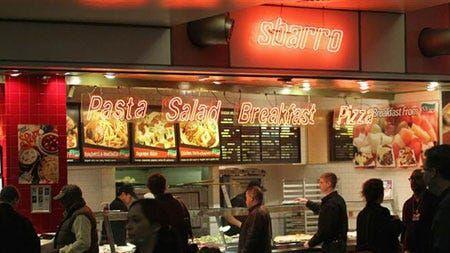Tender Greens, a California-based “fine casual” restaurant chain, has filed for Chapter 11 bankruptcy. The company, founded in 2006, operates 24 locations in California.
It reported debts between $10-50 million and assets under $50,000. This filing highlights the challenges faced by healthier fast-food alternatives in a competitive market.
The Gap Between Words and Actions

People often express support for ethical choices but act differently. This disconnect is evident in consumer behavior, political polls, and eating habits.
A study by Yale University found that 73% of Americans consider themselves environmentally friendly, yet only 20% consistently make eco-friendly choices. This phenomenon affects businesses trying to cater to health-conscious consumers.
Healthy Fast Food: A Tough Sell

Despite public demand for healthier options, traditional fast food remains popular. McDonald’s McPlant burger, introduced in 2021, saw low sales and was discontinued in most U.S. locations by 2022.
According to a 2023 National Restaurant Association report, only 28% of consumers regularly choose healthier menu items when dining out. This trend poses challenges for health-focused chains like Tender Greens.
The Rise of “Fine Casual” Dining

Tender Greens positions itself in the “fine casual” category alongside chains like Cava and First Watch. This segment combines fast service with higher quality ingredients and elevated dining experiences.
The fast-casual market was valued at $125.6 billion in 2019 and is projected to reach $209.1 billion by 2027 (Allied Market Research). Tender Greens aimed to capitalize on this growing trend.
Celebrity Backing Couldn’t Prevent Bankruptcy Filing

In 2015, renowned restaurateur Danny Meyer invested in Tender Greens. Meyer praised the concept, stating, “Every now and then, I’ll visit a restaurant and love the idea—the food, the people, the culture—so much that I wish I’d thought of it myself.”
Despite this high-profile support, the chain still faced financial difficulties. Celebrity endorsements don’t always guarantee business success.
Sustainability: A Core Business Value

Tender Greens emphasized sustainability in its operations and menu choices. The company’s website states, “Sustainability is at the core of all the choices we make, from our food to our planet to the future of farming.”
A 2022 National Restaurant Association survey found that 38% of consumers are more likely to choose restaurants with sustainable practices. However, implementing these practices can increase operational costs.
Debts and Creditors: A Financial Overview

One Table Restaurant Brands, Tender Greens’ parent company, listed significant debts in its bankruptcy filing. Major creditors include ChixEgg LLC ($5.1 million) and Sentry Insurance ($1.1 million).
The company also owes money to food vendors and landlords. This financial situation reflects the challenges of maintaining profitability in the competitive restaurant industry.
California Focus: Expansion and Contraction

All 24 Tender Greens locations are in California. The chain closed its New York locations in 2021.
California’s restaurant industry generated $97.5 billion in sales in 2022 (National Restaurant Association). Focusing on a single state can provide benefits but also exposes a business to regional economic fluctuations.
Minimum Wage Laws and Restaurant Operations

California’s new restaurant minimum wage law, affecting chains with 60+ locations, doesn’t directly impact Tender Greens. However, rising labor costs remain a concern for all restaurants.
The state’s minimum wage for all employers reached $15.50 per hour in 2023. Balancing fair wages with profitability is an ongoing challenge in the industry.
Bankruptcy Filing: Next Steps Unclear

Tender Greens has not shared a detailed bankruptcy filing plan. Chapter 11 bankruptcy allows for business reorganization and debt restructuring.
According to the American Bankruptcy Institute, 47% of Chapter 11 filings result in successful reorganizations. The outcome for Tender Greens remains to be seen.


